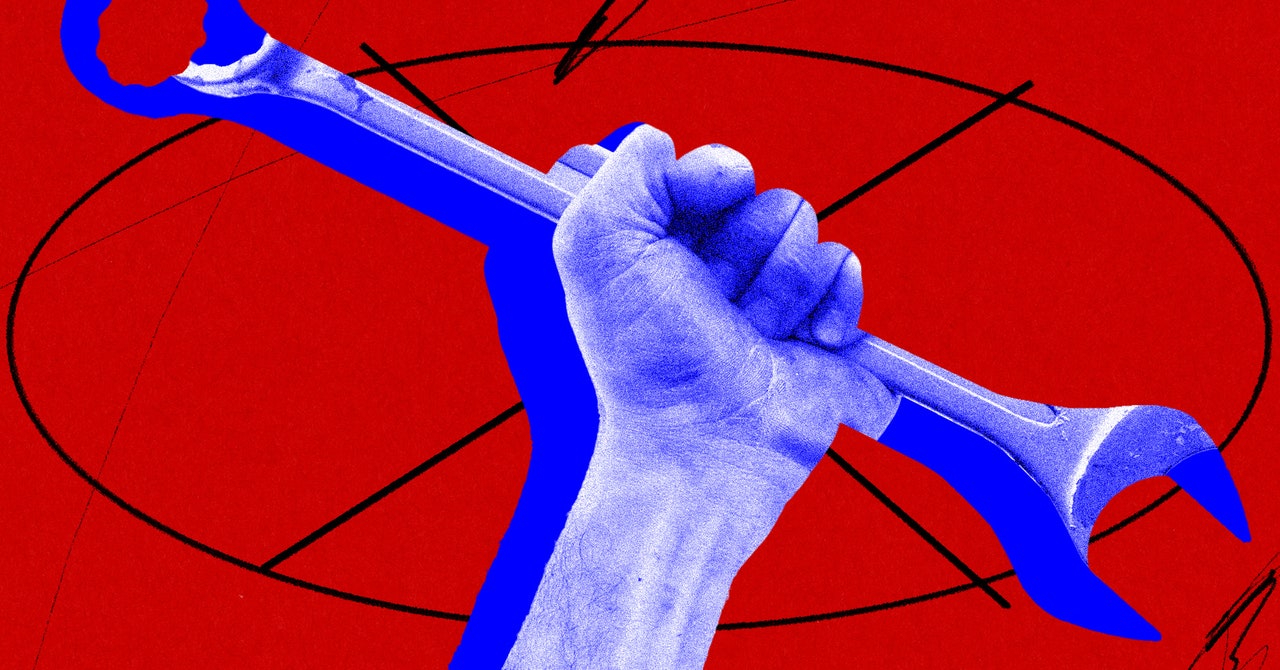In the swarm of post-election chaos that threatens to upend the goals of countless communities, at least one group is holding steady: the right to repair advocates.
With a second Trump presidency ascending in the US, experts have been furrowing their brows about what the incoming administration will mean for the tech industry. But the right to repair movement—aka the people with the shared dream of being able to fix your own stuff without having to take it to the manufacturer or void the warranty—seems to be on stable ground.
Right to repair efforts have broad support across party lines. Citizens of every political affiliation want to be able to change the battery in their phone. Farmers in both red and blue states want to be able to tinker with their John Deere tractors without getting locked out of the software.
“Right to repair has been firmly bipartisan from the beginning,” says Kyle Wiens, the CEO of iFixit and an occasional contributor to WIRED who has testified before the House Committee on the Judiciary about repairability policy. “I’m really not ‘doom and gloom’ on any of this. We feel very strong going into this. We have a really great working relationship with a lot of conservatives on the Hill, and we’re looking forward to continuing that.”
It also helps that the right to repair movement is not contained within US borders, and is building out quite well internationally. Canada recently passed two acts to amend its copyright laws that aim to make devices more interoperable and more repair and maintenance friendly. The European Union is responsible for several rulings that force companies to make devices more repairable. Since the affected electronics are sold globally, it is usually easier for companies to bring all their devices in line with a regional regulation than try to make different devices for different zones. Rules in one country tend to benefit the users in others.
Though right to repair efforts are very popular in the US, they have often failed to break through on the federal level. Wiens says this is less about any particular political climate of the moment, but the plodding nature of lawmaking in the US.
“It’s just a question of, is it possible to get anything through,” Wiens says with a laugh. “That’s generally how we feel about the right to repair. We often can get everybody onboard. The question is, can Congress pass laws of any kind?”

